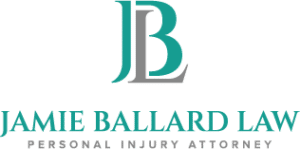Understanding Causation in Atlanta Accident Cases
Dealing with the aftermath of an accident can be overwhelming. If you’re confronting through an accident case in Atlanta, understanding the term causation is important. This term is helpful in personal injury cases and plays a significant role in determining liability. We’ll break down what causation means, why it matters, and how it influences your personal injury claim.
What is Causation in Personal Injury Law?
In the context of personal injury law, causation refers to the relationship between the defendant’s actions and the plaintiff’s injuries. Essentially, it must be proven that the defendant’s actions directly caused the injuries sustained by the plaintiff. There are two types of causation that need to be established in a personal injury case:
- Cause in Fact: This means that the injury would not have occurred “but for” the defendant’s actions. It is often referred to as “actual cause.”
- Proximate Cause: This focuses on whether the injuries were a foreseeable result of the defendant’s actions. It asks if the defendant should have reasonably anticipated the harm their actions could cause.
Why is Causation Important in an Atlanta Personal Injury Case?
For a personal injury claim to be successful, you need to establish that the defendant’s actions or negligence directly caused your injuries. Without proving causation, it’s challenging to hold the other party liable and secure compensation for your damages.
Relevant Georgia Laws
In Georgia, personal injury claims are governed by state law. It is helpful to understand these statutes when dealing with causation:
- O.C.G.A. § 51-1-6: This law outlines the necessity to prove that one party’s negligence directly caused harm to another.
Proving Causation in an Atlanta Accident Case
Proving causation requires substantial evidence. Here are some methods personal injury lawyers use to establish this key element:
- Medical Records: Detailed medical documentation that links the injuries directly to the accident.
- Witness Testimony: Testimonies from witnesses who observed the accident can corroborate your account of events.
- Expert Testimony: Expert witnesses, such as medical professionals, can provide opinions on how the injuries relate to the accident.
- Accident Reports: Police and accident reports can offer important details about the incident and its causes.
Challenges in Proving Causation
Proving causation can sometimes be difficult. Common challenges you might encounter include:
- Pre-existing Conditions: If you had a medical condition before the accident, the defense might argue that your injuries weren’t solely caused by the collision.
- Lack of Evidence: Insufficient evidence can make it hard to establish a direct link between the defendant’s actions and your injuries.
FAQs About Causation in Atlanta Accident Cases
| Question | Answer |
|---|---|
| What does causation mean in a personal injury case? | Causation refers to proving that the defendant’s actions directly caused the plaintiff’s injuries. |
| Why is causation important? | It’s necessary to establish causation to hold the defendant liable and secure compensation for damages. |
| What types of causation must be proven? | You need to prove both “cause in fact” and “proximate cause.” |
Local Resources in Atlanta for Accident Victims
If you need additional support, here are some local Atlanta resources:
| Resource | Contact Information |
|---|---|
| Grady Memorial Hospital | Grady Health – (404) 616-1000 |
| Atlanta Police Department | Atlanta PD – (404) 658-6666 |
| Atlanta Legal Aid Society | Atlanta Legal Aid – (404) 524-5811 |
Your Atlanta Personal Injury Lawyer: Jamie Ballard
Jamie Ballard is a top-notch personal injury lawyer in Atlanta, renowned for his compassionate and detail-oriented approach. With extensive experience in handling accident cases, Jamie ensures that every case is meticulously investigated to establish causation and secure the best possible outcome for his clients. If you’re dealing with the aftermath of an accident and need a reliable personal injury lawyer, consider reaching out to Jamie Ballard for expert legal assistance.
For more information or to schedule a consultation, visit Jamie Ballard Law or call 404-301-1687.

